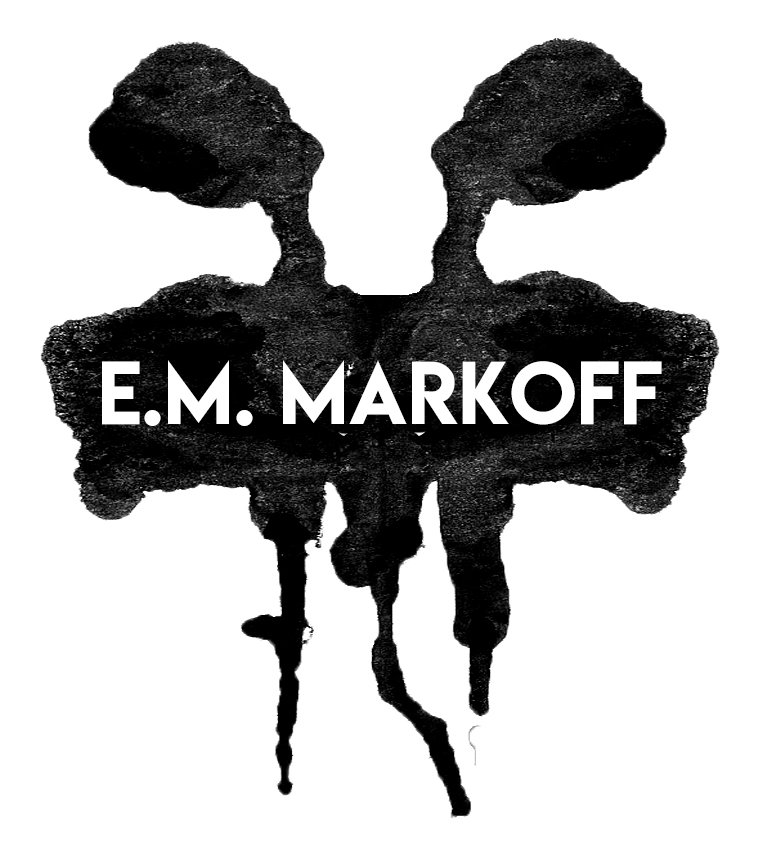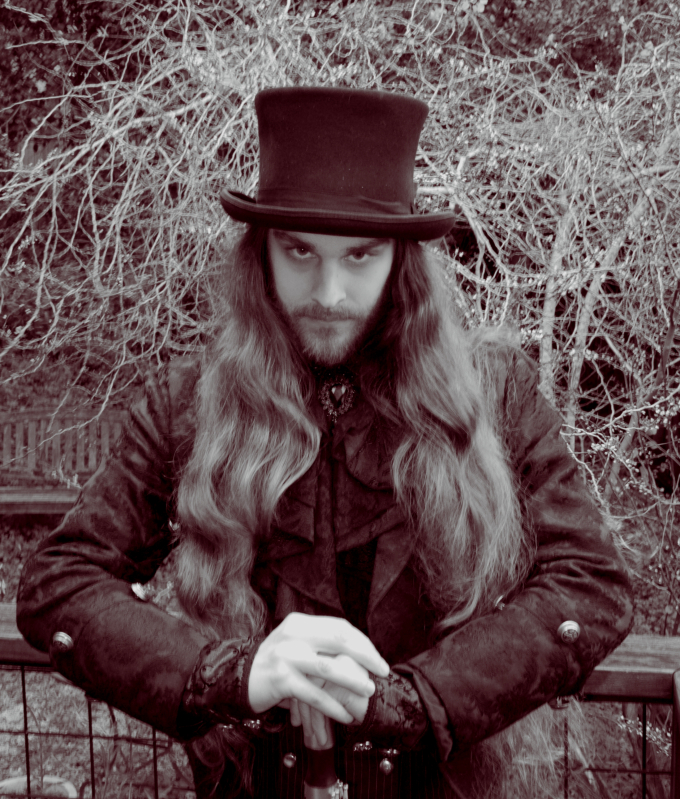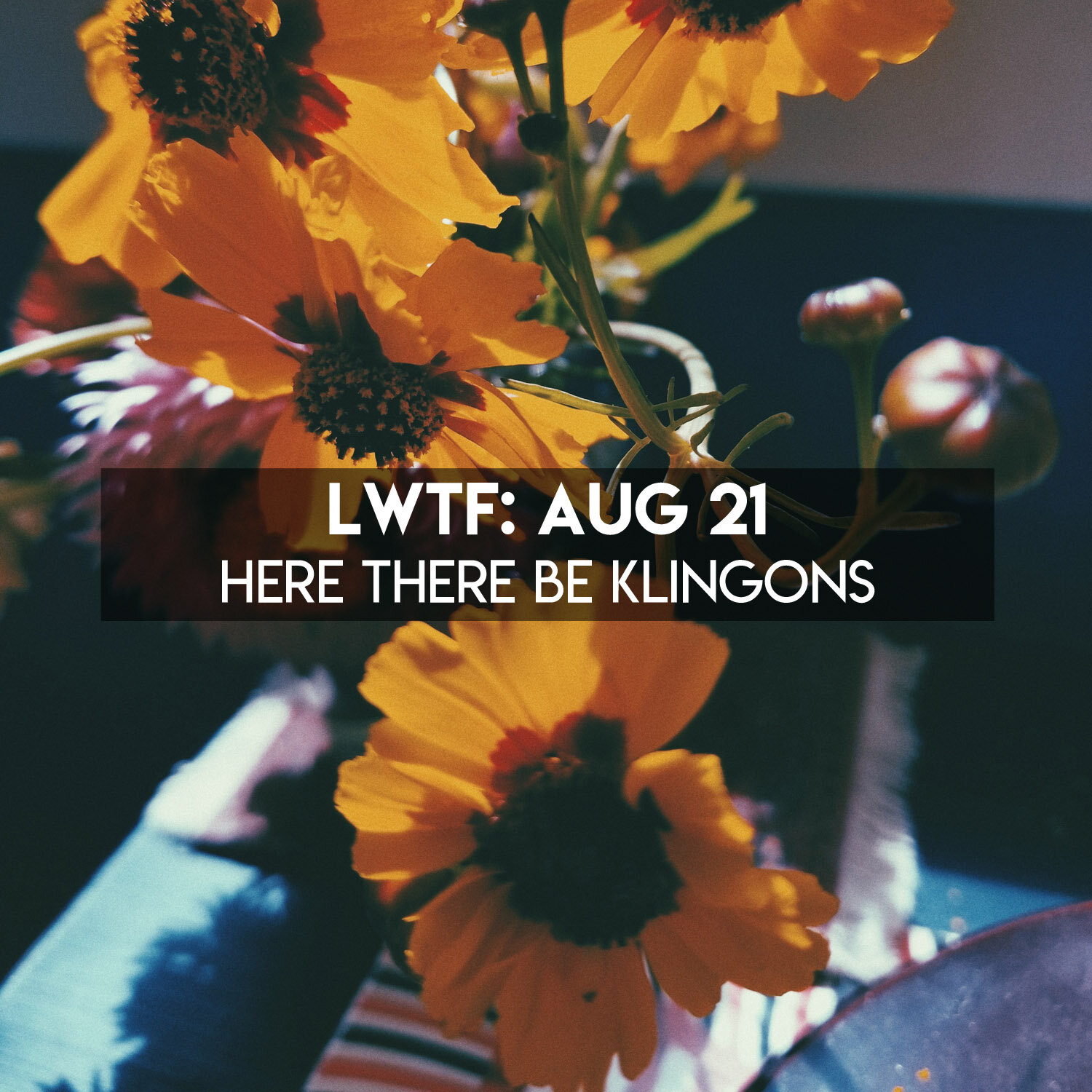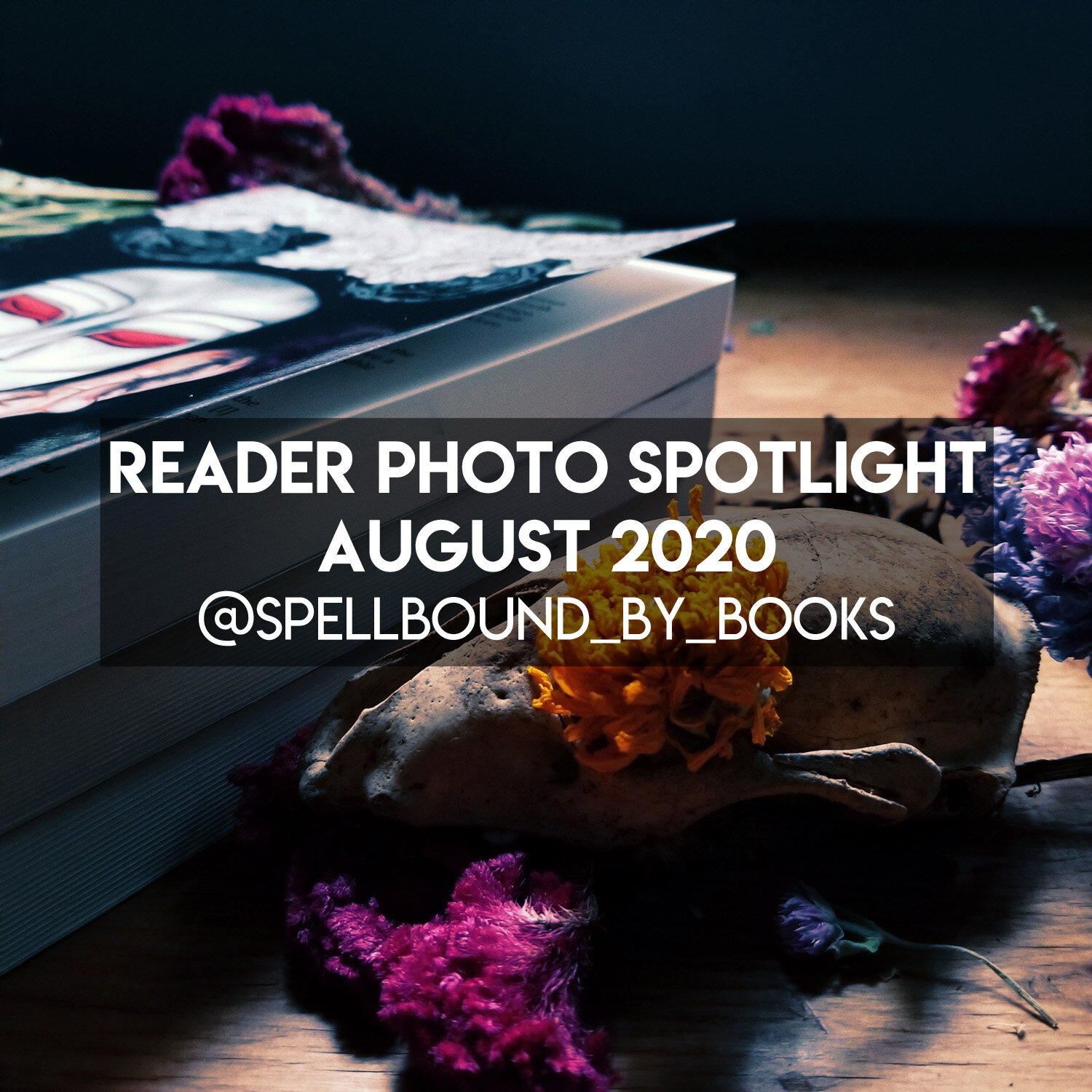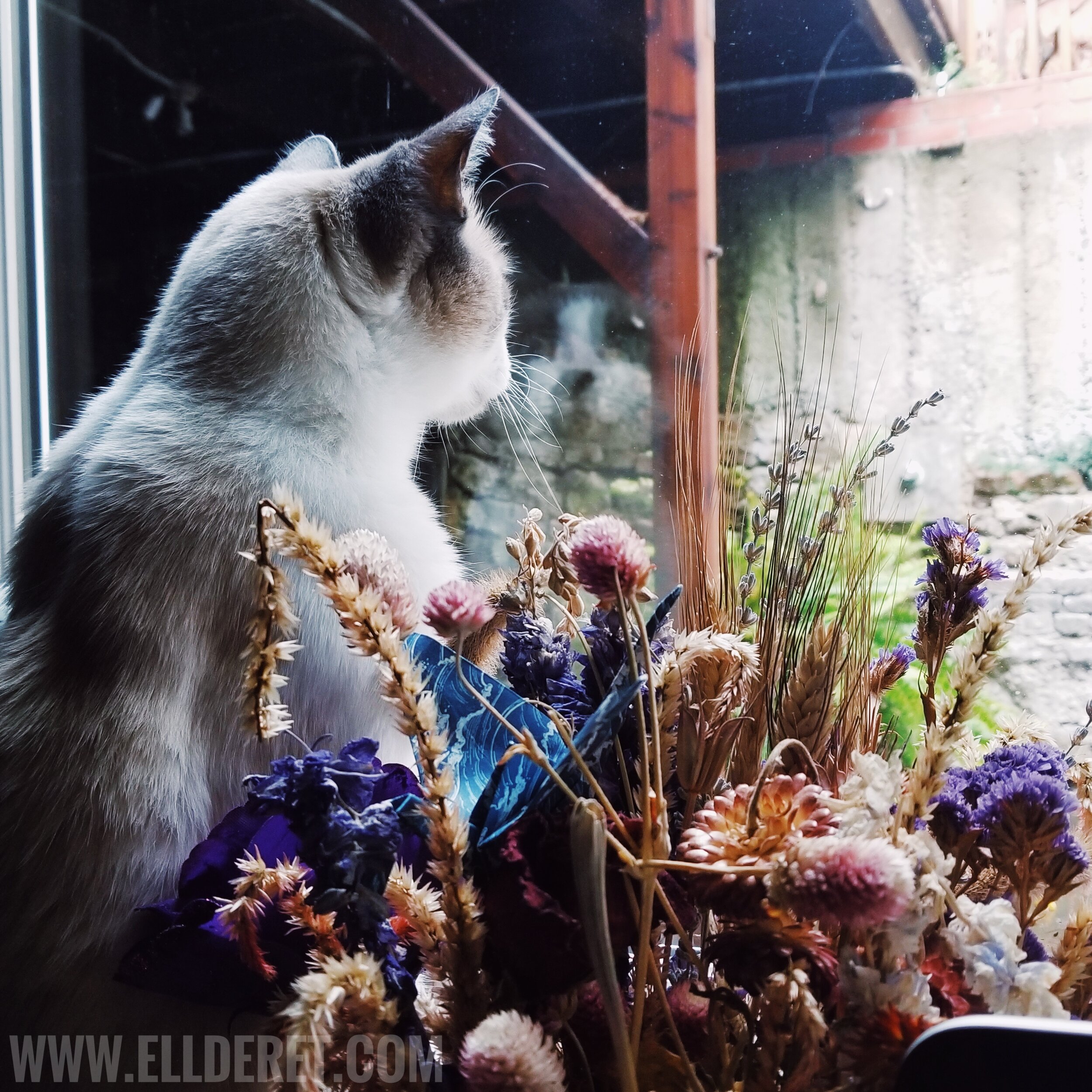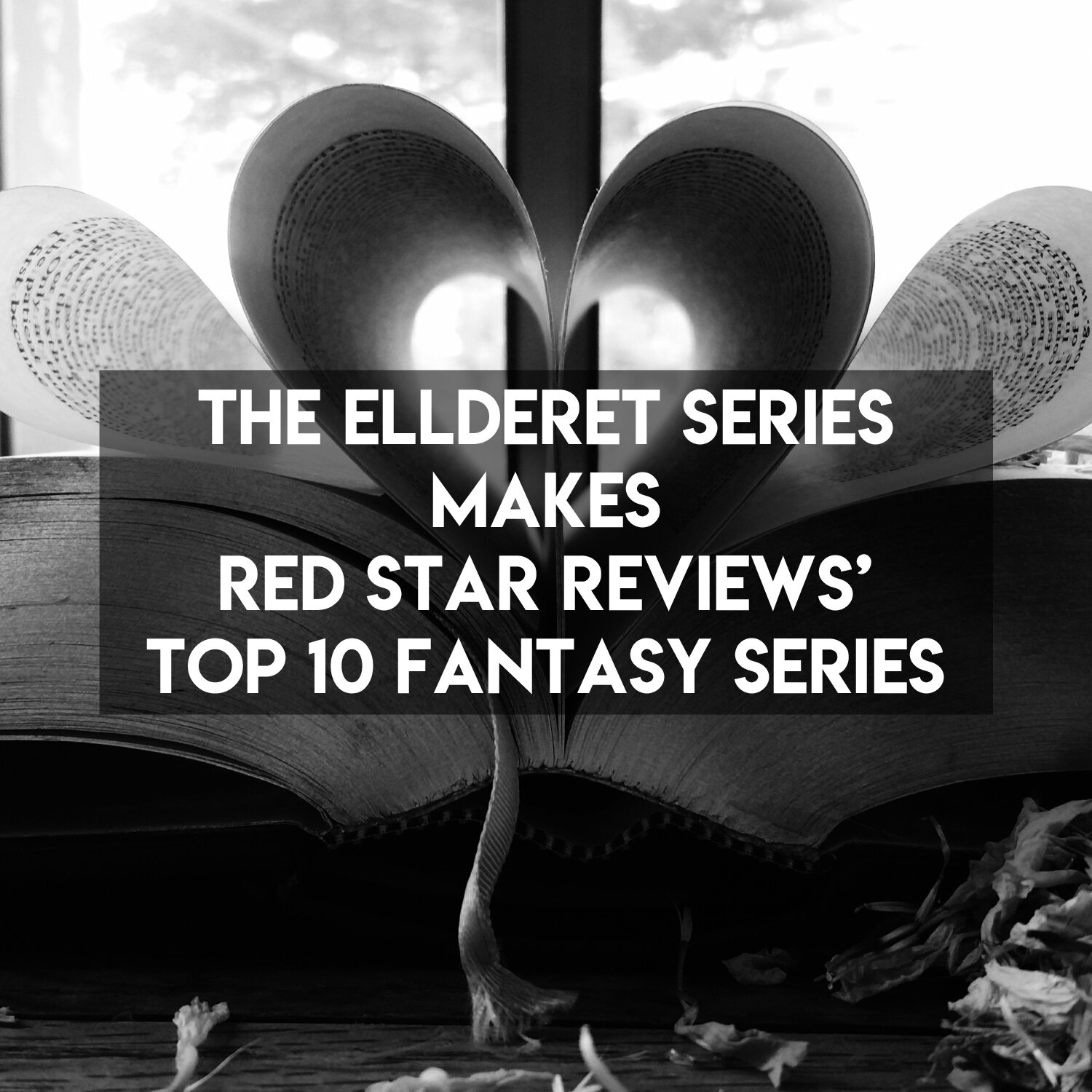Guest Post | The ‘Death’s Garden Revisited’ Playlist by Loren Rhoads
When I put together the original Death’s Garden book in the early Nineties, I worried that its subject matter would be really dark. After all, I was asking people to write about their relationships with cemeteries. Instead, the book turned into a celebration of life, family, community, and so much more.
The first book came together almost by accident. When I decided to put together a sequel all these decades later, I was much more intentional about its contents. I was looking to underline my belief that every day aboveground is a good day. Cemeteries help to put so much in perspective.
One of the most fun things I’ve done to promote the second Death’s Garden book is to assemble a playlist. I asked each of the contributors for their “favorite cemetery song” and I left it up to them to decide what that meant. Not everyone participated. Some suggested more than one song.
The song I started with, “Ain’t No Grave” by Crooked Still, sets the pace for the playlist. It’s a propulsive pop country take on the old gospel song, with tight vocal harmonies and virtuosic banjo playing over standup bass. It wears its religious roots upfront, but I love the shade of meaning it gives to the song that follows: “Pet Sematary” by the Ramones, which was written for the soundtrack of the movie based on the Stephen King novel.
Photo provided by the author | Kickstarter campaign live until April 16, 2022!
The third song, “Bury Me Face Down” by grandson, was new to me, even though the single came out in 2016. It quickly became an earworm, as have a number of the songs on the list.
As a matter of fact, I was really proud of the spectrum of songs filling the list. They span from folk songs and murder ballads through country and gospel and from rock to Goth to Industrial to classics. There are a couple of instrumentals from movie soundtracks alongside “In Memory of Elizabeth Reed” by the Allman Brothers Band and “Dreams of Wounded Knee” by Native American recording artist Bill Miller.
Some songs, like “Pet Sematary,” were suggested by several people. Some songs, like “Long Black Veil,” were suggested by multiple artists, but I felt I could only choose one version. Even though I already had Johnny Cash on the playlist for “Ghost Riders in the Sky,” I felt like I had to go with his version instead of the cover by the Bastard Sons of Johnny Cash, which was also suggested. I personally like Hugh Laurie’s take on “St. James Infirmary,” but once someone chose Louis Armstrong’s classic, I was glad to include it.
When the contributors (including E. M. Markoff!) joined me for a party on Facebook last weekend, I suggested that everyone listen to the playlist as we conversed online. Even though we were scattered across the US and Canada, the comradery and common playlist brought us together. Songs about cemeteries can make you feel good.
See for yourself by checking out the playlist on Spotify: https://open.spotify.com/playlist/4S0255SPm7grf5NShTbLgT?si=a183ec1bca4749e4
You can preorder Death’s Garden Revisited on Kickstarter until April 16: https://www.kickstarter.com/projects/lorenrhoads/deaths-garden-revisited-relationships-with-cemeteries
About the Author:
Photo provided by the author
Loren Rhoads is the editor of Death’s Garden: Relationships with Cemeteries and Death’s Garden Revisited. She’s also the author of 199 Cemeteries to See Before You Die and Wish You Were Here: Adventures in Cemetery Travel.
Book Blurb:
Genealogists and geocachers, travelers and tour guides, anthropologists, historians, pagan priestesses, and ghost hunters all venture into cemeteries in Death’s Garden Revisited.
They discover that cemeteries don't only provide a rewarding end to a pilgrimage, they can be the perfect location for a first date or a wedding, the highlight of a family vacation, a cure for depression, and the best possible place to grasp history. Not to mention that cemetery-grown fruit is the sweetest.
Spanning the globe from Iceland to Argentina and from Portland to Prague, Death’s Garden Revisited explores the complex web of relationships between the living and those who have passed before.
Guest Post | Redemption by Catherine Schaff-Stump
Like most readers, I know what I like. I have a weakness for troubled souls who turn it around. For me, the redemption arc is one of the most satisfying aspects of a good book.
A casual skim of my bookshelves stories where characters become better in spite of themselves. There’s Pride and Prejudice, where Lizzy Bennett and Fitzwilliam Darcy give up their biases for love.
Original image pulled from https://cathschaffstump.com/
Like most readers, I know what I like. I have a weakness for troubled souls who turn it around. For me, the redemption arc is one of the most satisfying aspects of a good book.
A casual skim of my bookshelves stories where characters become better in spite of themselves. There’s Pride and Prejudice, where Lizzy Bennett and Fitzwilliam Darcy give up their biases for love. On the shelf below it, I see The Count of Monte Cristo, where even revenge-driven Edmond Dantes learns how to forgive and start a new life. The list goes on: The Last Unicorn, where Schmendrick figures a few things out; the Rivers of London series, where I’m eagerly watching to see if Lesley May comes out the other side of her descent into angst-laden bad decision making; and The Adventures of Kavalier and Clay, in which the titular characters have to learn that the decisions that allow them to be true to themselves are the only decisions that allow for their redemption. Even the book my new novel The Wrath of Horus is patterned on, Dante’s Inferno, is a story about a guy turning his life around in the right direction because damnation is a bad option.
Image pulled from https://cathschaffstump.com/
I enjoy writing the redemption arc as much as I enjoy reading it. The Wrath of Horus is book three of the Klaereon Scroll series, and it is a descent into darkness for all the characters, but especially for Gregorius Klaereon. When we first meet Gregorius, he is the quintessential bad boy. I mean, come on. Look at his Byronic picture on the cover!
Gregorius has been guided toward his Trial with the god Horus by Horus himself, who has taught Gregorius he is better than everyone else, just like Horus is. Greg swaggers and talks with his fists, but something that Horus hasn’t taught Greg lurks beneath the surface of Greg’s actions. Greg believes he is responsible for causing the deaths of his parents. His bravado and his aggressive posture keep people away from this essential truth: In Greg’s mind, he is unlovable, and those who get close to him get hurt. In the book, Greg is abused, and he feels deep down he deserves it.
I have writer friends who don’t like Greg, who find him distasteful and irredeemable, a petty bully they have little empathy for, who makes the people around him suffer. What makes a character potentially redeemable? There’s a line I think can’t be crossed. As we launch The Wrath of Horus, I’ve posted an article elsewhere about Set, who I don’t think I can redeem, based on the severity and brutality of his crimes. Set’s motivations also make him irredeemable. Greg, on the other hand, has possibility.
Greg suffers because of Set. If redemption is partly suffering, as Dante suggests it is in The Inferno and Purgatorio, Greg goes through the physical act of paying for his sins. Greg comes through his experience to understand both himself and others in different ways. Most importantly, Greg understands from his family and friends that he doesn’t deserve suffering, that he doesn’t need to drive people away, that he can be loved.
What happens in the next book, The Wisdom of Thoth is largely up to Greg. I can’t tell you for sure if he is destined for redemption, because I haven’t written that book yet, but I do know the door is open, and Greg has the option to step through.
And I am a sucker for a good redemption arc after all.
Image provided by the author
Cath Schaff-Stump writes fiction for children and adults, from humor to horror. She is the author of the Klaereon Scroll series and the Abigail Rath Versus series. She lives and works in Iowa, teaching English. You can find her online at Facebook, Goodreads, Amazon, @cathschaffstump, and cathschaffstump.com, and follow her Kindle Vella serial The Autumn Warrior and the Ice Sword.
About The Wrath of Horus
For Gregorius Klaereon, his Trial with the god Horus isn’t about winning or losing. It’s about the fight. His temperament aggressive, his anger on display for all to see, Greg is a direct contrast to his brother Marcellus, the perfect Lord Klaereon, the prophet who can do no wrong. How Marc tolerates Greg is a mystery to Greg himself, especially as Greg knows deep down that Greg is responsible for the deaths of his parents.On the eve of the Klaereon birthday celebration, two days before Greg’s Trial, Greg fights with his cousin Flavia Borgia, and the two of them activate a reality shard which sends them, Marc, and others to the Abyss. There, they are judged and scattered throughout the nine circles. Greg, alone, discovers his Trial was the least of his worries as he is confronted by Set, the god of destruction, in a desolate landscape where his shadow powers no longer work. While Greg endures, certain his rightful punishment has found him, Marc and the others scramble to reunite, rescue Greg, and make their way to the Golden City of the banished Egyptian pantheon, desperate to find a way home.
Links:
Subscribe to Cath’s Newsletter: https://cathschaffstump.com/newsletter-sign-up/
Learn more about the Klaereon Scroll Series: https://cathschaffstump.com/the-klaereon-scroll-series-2/
Check out Cath’s Blog: https://cathschaffstump.com/blog/
Guest Post | The Heart of This Morbid Life by Loren Rhoads
When I was a kid, I went to a sleepover at a friend's house. Her family were strict evangelical Christians, which makes what happened later even more inexplicable.
Original image provided by Loren Rhoads
When I was a kid, I went to a sleepover at a friend's house. Her family were strict evangelical Christians, which makes what happened later even more inexplicable.
There were a gang of us there, all sixth-grade girls: Sherry, the two Lisas, Raeann, and me. I wonder now if we were celebrating someone's birthday, but it was so long ago that I don't remember. For that matter, I'm not sure who suggested we play "light as a feather, stiff as a board." Sherry and the Lisas all had older sisters, so one of them must have learned from an older girl.
When it was my turn, I sat in a high-backed wooden chair, arms on the armrests, eyes closed. Sherry stood behind me, rubbing her fingers lightly in circles over my temples. The point was to hypnotize me. Everyone repeated "Light as a feather, stiff as a board" over and over. Sherry shushed the other girls when they giggled.
My body relaxed by degrees, slumping into the chair. Eventually, I felt as if my soul flew out of my body, rushing upward toward the ceiling. I traveled through the house, which looked like a model or doll house, like a rat's maze with no roof. I watched her dad watching TV in the bedroom and her sister talking on the phone.
Image provided by Loren Rhoads
Back where my body sat in the dining room, my friends each stuck out two fingers on both hands. They slipped their fingers under my thighs and butt and lifted my body off the chair. I'm not sure how far they planned to raise me, but the process was complicated by the arms of the chair. As they tried to work out how some of them could hold me up while the others reached around the chair's arms, I could hear their voices as if at a distance.
When they juggled, then dropped me, I woke up from the trance.
It was the most incredible experience. The things I saw seemed so very real, things that eleven-year-old me would have had trouble imagining.
That's the mindset that's informed the rest of my life and led to my newest book. This Morbid Life is a memoir told through essays: stretching from taking prom pictures in a cemetery in the rain to spending a couple of days in a cadaver lab, from traveling the world to visit dead people in museums to standing beside my brother's coffin, from smuggling absinthe before it was legal to eating bugs for fun. I hope you'll join me on my adventures.
Loren Rhoads is the author of 199 Cemeteries to See Before You Die and Wish You Were Here: Adventures in Cemetery Travel. She was the editor of Morbid Curiosity magazine and the book Morbid Curiosity Cures the Blues: True Tales of the Unsavory, Unwise, Unorthodox, and Unusual. Her most recent book is This Morbid Life, a memoir comprised of 45 death-positive essays.
About This Morbid Life
What others have called an obsession with death is really a desperate romance with life. Guided by curiosity, compassion, and a truly strange sense of humor, this particular morbid life is detailed through a death-positive collection of 45 confessional essays. Along the way, author Loren Rhoads takes prom pictures in a cemetery, spends a couple of days in a cadaver lab, eats bugs, survives the AIDS epidemic, chases ghosts, and publishes a little magazine called Morbid Curiosity.
Originally written for zines from Cyber-Psychos AOD to Zine World and online magazines from Gothic.Net to Scoutie Girl, these emotionally charged essays showcase the morbid curiosity and dark humor that transformed Rhoads into a leading voice of the curious and creepy.
“Witty, touching, beautifully written, and haunting — in every sense of the word — This Morbid Life is an absolute must-read for anyone looking for an unusually bright and revealing journey into the darkest of corners. Highly recommended!” — M.Christian, author of Welcome To Weirdsville
Sales links:
The paperback at Amazon: https://amzn.to/3mhZajO
The ebook at Amazon: https://amzn.to/3kcFlrP
Bibio.com: https://www.biblio.com/book/morbid-life-loren-rhoads/d/1424501894
Get signed copies from Loren’s bookstore: https://lorenrhoads.com/product/this-morbid-life-autographed-1st-edition/
Bosses from Hell, by Loren Rhoads | A Post about Asmodeus from As Above, So Below
My first real "adult" job was working as the private secretary for one of the main lecturers at the Dental School at University of Michigan. Bradley was an intimidating man, large, with a booming voice when he lost his temper. He got angry at his lab assistants a lot …
Jacques Auguste Simon Collin de Plancy’s Dictionnaire Infernal
A note from me (EMM): Welcome back 💙 I hope you enjoy this post by author Loren Rhoads. Want to know my thoughts over Lost Angels and Angelus Rose? Check out my review!
Book Blurb
Angelus Rose: As Above, So Below #2
by Loren Rhoads & Brian Thomas
If Romeo had wings and Juliet a barbed tail, could they find happiness in the City of Angels?
After their escape from the ashes of Lost Angels, the succubus Lorelei and the angel Azaziel want nothing more than to enjoy each other's company. Unfortunately, Asmodeus, the Demon Prince of LA, has threatened to devour Lorelei's new-grown soul if she doesn't bring about Azaziel's downfall. Meanwhile, Aza is keeping secrets of his own that threaten the tenuous peace between Heaven and Hell.
Three archangels come to town to try to set things right, but friendships are fracturing. The demon in charge of fallen angels is sniffing around. And Los Angeles is about to be caught between a devil and the deep blue sea.
Photo Credit: Loren Rhoads
Bosses from Hell
by Loren Rhoads
Photo provided by Loren Rhoads | Jacques Auguste Simon Collin de Plancy’s Dictionnaire Infernal
My first real "adult" job was working as the private secretary for one of the main lecturers at the Dental School at University of Michigan. Bradley was an intimidating man, large, with a booming voice when he lost his temper. He got angry at his lab assistants a lot. He didn't shout at me, because my work was strictly a prestige thing for him. He didn't have enough filing or typing for a full-time secretary, but he liked to have someone around to jump when he called.
Sounds pretty much like any secretarial job, doesn't it? What made this one traumatic was that we all worked in an animal testing lab. The lab assistants were vivisecting rats and lambs, mapping the connections between their taste buds and brains. I wrote in Morbid Curiosity Cures the Blues about what pushed me to quit that job, but I'd never written about it in fiction...until I started exploring the relationship between the succubus Lorelei and Asmodeus, the demon in charge of running Los Angeles.
Asmodeus, like my former boss, could make things really fun. Bradley would spontaneously take all of us out for a lavish Indian feast or invite us to his beautiful home for Christmas dinner. Those invitations weren't optional. He could be incredibly generous and he loved to teach, but I developed bursitis in both shoulders while trying to file things in his massive, heavy cabinets. I was too young to know I could complain about the conditions. Everyone else had made a devil's bargain for the boost they could get in their graduate studies and eventual careers.
Omar Shariff
When I set out to create the character of Asmodeus, I wasn't thinking about Bradley at all. Instead, I had in mind Omar Shariff, especially in Lawrence of Arabia: darkly handsome, on the edge of violence, quick as a snake.
Asmodeus is a Persian devil, mentioned in the Bible as a false god worshipped by the Syrians. In the Book of Tobit, Asmodeus slew the seven bridegrooms of Sarah before they could consummate their marriages. The demon was eventually outwitted by the angel Rafael and banished to Egypt. Brian and I worked that mythology into our book Angelus Rose.
By the Middle Ages, Asmodeus was considered one of Seven Princes of Hell, each a personification of a deadly vice. Asmodeus served as the demon of lust, credited eventually with inventing carousels, dancing, drama, and music. He commanded 72 legions of demons and oversaw the gambling houses in Hell.
Traditionally he's represented as having three heads, but I prefer the 18th-century French description of him as the limping devil. It's said he was lamed when he fell from Heaven.
In the As Above, So Below books, Lorelei talks about Asmodeus as a boss who knew how to make it fun to serve him. She sasses him, but she doesn't forget that once he punished her by piercing the bone spurs atop her wings and locking them together for months. He plays on the jealousy between Lorelei and her sister succubus Floria -- and the competition both succubi feel toward the temptress Yasmina. He never makes it any secret that all of them are expendable, if it advances his power in this world.
In my short story "Never Bargained for You," Asmodeus appears to be an entertainment agent with a mansion above Laurel Canyon. Lorelei works as a talent scout, using sex to lure bands into signing over their souls for fame and fortune. (The story is available to read for free at Bookfunnel. Here's the link: https://dl.bookfunnel.com/5tecny8c9j) (EDIT 9/2: The link was broken, but it’s now fixed!)
By the start of the book Lost Angels, Asmodeus has staged a coup and overthrown Beelzebub to become the Prince of LA. He has minions running talent agencies and horse tracks. He owns dance clubs and restaurants. His organization has tendrils throughout the entertainment industries of LA. Lorelei is happily working amidst them, capturing souls for the glory of her boss and Hell...until she sees the angel Azaziel drinking at her master's bar one night and follows him home.
It was really fun to write for Asmodeus. I hope he comes off as frightening and capricious as my boss Bradley used to be.
Excerpt
Photo Credit: Loren Rhoads
Asmodeus, Prince of Los Angeles
excerpt from Lost Angels by Loren Rhoads & Brian Thomas
A section of the alley wall wavered. First the cinderblocks were solid, then oily blackness swallowed them. Out of this darkness stepped Asmodeus, trailed by two fiends in the form of large men, angular to the point of being misshapen.
Probing the refuse with his ebony walking stick, Asmodeus picked his way through the alley. Near the passage’s mouth, he halted. At his feet lay a crumple of shadow: Lorelei’s cast-off dress. The demon gestured down toward it.
Recognizing its master, the dress stirred, lifting a sleeve flirtatiously. When it brushed his hand, the cloth hurried upward into his grasp.
The demon rolled the fabric between his fingertips. Lycra had definitely been one of his engineering staff’s most useful inventions. He considered how tasty Lorelei had looked poured into this pinnacle of the art. What a shame the angel cast it away so maliciously.
Asmodeus raised the torn fabric to his face and breathed deep. Beneath the dark fragrance of Lorelei’s musk—wound amongst it—was the scent of the angel’s longing. He’d lain beside the succubus, kissed and caressed her, but his desire didn’t end there.
Unsmiling, the demon prince crushed the dress in his fist and let it dissolve.
Guest Post: How Metal Changed My Life by Jonathan Fortin
My short story Requiem in Frost is not exactly autobiographical. I’m not a Norwegian girl, and I’ve never lived in a house haunted by the ghost of an extreme metal musician. But there is an important facet that is taken fairly directly from my own life …
My short story Requiem in Frost is not exactly autobiographical. I’m not a Norwegian girl, and I’ve never lived in a house haunted by the ghost of an extreme metal musician. But there is an important facet that is taken fairly directly from my own life.
Requiem is the story of Ingrid, a fourteen-year-old girl who discovers music that speaks to her after finding it abrasive throughout her childhood. This was more or less my own experience growing up as a hypersensitive autistic boy. Bright sunlight hurt my eyes; my first time showering felt like needles were puncturing my back; I was disgusted by food that everyone else loved; and music made my ears hurt. That last one made me feel especially alone in the world; who didn’t like music? It didn’t help that my dad was a jazz guitar player, and my brother a drummer, whose drum set took up a big chunk of the room we shared. At school, the other kids blared hip-hop, the bass turned up so high that I felt its vibrations in my chest and temples—an uncomfortable, violating sensation that would render me unable to think or function.
As a result of all this, I considered music to be abrasive, inescapable noise that was forced upon me. I enjoyed certain movie soundtracks and didn’t mind the angsty punk rock that my brother introduced me to, but nothing really awakened my passion until I turned seventeen, and I decided to seek out music of my own. I was obsessed with Tim Burton movies, and had got it into my head that I was a goth, even though I had yet to dress the part or listen to the music associated with the subculture. My school didn’t have too many goths, so I took to the internet, asking online acquaintances for suggestions—some of which I liked, some of which I didn’t. Slowly, I expanded my musical knowledge, and was soon hooked on goth, industrial, and of course metal.
My exposure to extreme metal began, as it did for many in my generation, with Cradle of Filth. At seventeen, I was not yet accustomed to screamed or growled vocals, finding them as abrasive as high-bass hip-hop. The beautifully gothic music video for Cradle of Filth’s “Nymphetamine” changed that. It mixed Dani Filth’s (rather silly) growls with clean, angelic vocals from Liv Kristine and a sumptuous visual style. I was so taken by the aesthetic of the clip that I watched it over and over, slowly becoming desensitized to the growled vocals. From there I moved on to Dimmu Borgir’s symphonic epic “Progenies of the Great Apocalypse,” and shortly thereafter moved onto more traditional (or “proper”) black metal acts—eventually falling in love with the likes of Emperor and Immortal. Amongst seasoned black metal fans, Cradle of Filth and Dimmu Borgir are largely a joke. Both bands are cheesy and commercialized when compared to true black metal. But I think it’s important to realize that these bands can serve as a gateway to what many of us think of as better music.
Black metal doesn’t have the best reputation. Most “normal” people find it too abrasive to listen to; its history is full of suicide, church-burning, and murder; and there’s an unfortunate Neo Nazi contingent in the fandom. But for me, the dark music became a source of comfort and catharsis, its abrasions somehow healing, its barbarism somehow peaceful. It also became a source of community, allowing me to meet other people with similar interests and beliefs. I cannot understate what a hugely significant thing this was. Growing up, I didn’t have too many friends—I was awkward, shy, and didn’t have too much in common with my peers. Discovering my music allowed me to discover my people.
In other words, this dark, satanic music was a wholeheartedly positive influence on my life, and a big reason why I managed to grow up into a well-adjusted, high-functioning adult.
You’ll have to read Requiem in Frost to find out whether the same can be said for Ingrid.
